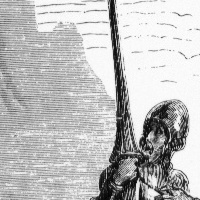Links: DSP resources
As a M.Sc. student with an “applied math” major, I’ve always felt uneasy about the fact that I don’t really know DSP as well as I’d like; only bits and pieces I’ve picked up “on the side”. After all, isn’t DSP a classic applied math topic? OTOH I’m not probably going to be a classic applied math graduate, but nevertheless …
While I’m not planning to do any kind of DSP at least in immediate future, I can’t resist hoarding DSP materials when I spot them (and then studying a little bit, with the hopes of improving my rudimentary knowledge, the Socratic “I know what I don’t know” level). Below is the current list:
Previously I have linked to Wikipedia on Signals and Systems, which isn’t comprehensive.
O’Haver
A Pragmatic* Introduction to Signal Processing by Tom O’Haver. Website design looks very … turn of the millenium. Enabling reading mode or the equivalent in your browser of choice helps a lot.
I read Introduction and a couple of first chapters (i, ii learned new things about various kinds of noises!, iii smoothing: weird-ly named filters and lessons, such as, smoothing is not magic and not always beneficial, iv discussion of numerical differentiation).
The book is a curious beast. You’ll find advice on 1990s tools like SPECTRUM and 2010s tools like WolframAlpha interspersed amongst each other. But it surely includes practical, gentle explanations.
Content is good but the presentation … less so?
Smith
The Scientist and Engineer’s Guide to Digital Signal Processing by Steven W. Smith, Ph.D.
(I’ve always thought it’s a bit silly how some book authors emphasize that “Ph.D” title?)
This one looks more modern textbook. Did not read in detail.
Prandoni and Vetterli
Signal Processing for Communications by Paolo Prandoni and Martin Vetterli.
This one discussed Hilbert spaces. Am I in love? Didn’t real in detail either.
